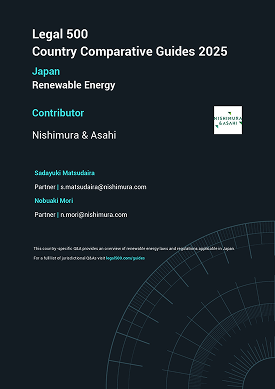-
Articles
Thai Solar Rooftops: Updates to Thailand’s Factory Act
A recent notification removes the requirement to obtain factory licenses for solar rooftops in Thailand. This will make it easier for business operators across the country to install large-scale solar rooftops and acquire electricity under corporate PPAs from solar rooftop installations.
Solar rooftops no longer considered “factories”
Solar panels in Thailand don’t usually have any moving parts, but up until last year a solar rooftop with an installed capacity exceeding 1,000 kW was considered a “factory” under the Factory Act B.E. 2535 (1992) (“Factory Act”), and required a factory license from the Department of Industrial Works.
On 27 December 2024, the Ministry of Industry introduced Ministerial Regulation (No. 3) B.E. 2567 specifying the classifications, types, and sizes of factories (“Ministerial Regulation”), which removes solar rooftops from the definition of factory, regardless of the installed capacity, if installed on rooftops or any part of a building that can be occupied or utilized by individuals.
In theory, there may be limited types of solar rooftops on buildings that cannot be occupied or utilized by individuals, and which require detailed consideration as to whether factory licensing is still required, but none immediately spring to mind. Solar rooftops on warehouses, logistics and distribution centers, department stores, convention centers and car parks now all seem to fall outside the factory definition.
Previous hurdles removed
The previous classification of solar rooftops as factories prevented some building occupiers from installing solar rooftops with an installed capacity exceeding 1,000 kW if they were located in an area subject to zoning restrictions which prohibited factories. These occupiers will now be able to have solar rooftops installed, and the Ministerial Regulation should result in solar rooftops being permitted in areas which previously prohibited solar rooftops due to zoning restrictions on factories.
In other cases, solar rooftop developers intentionally limited the installed capacity to 999 kW in order to avoid the need to obtain a factory license, and in the case of large buildings which could support more than 1,000 kW of installed capacity, developers were known to establish multiple special purpose vehicles (SPVs), each installing up to 999 kW of capacity, on a single rooftop. Going forward, there will be no need for developers to incur the administrative costs of multiple SPVs for a single rooftop capable of hosting more than 1,000 kW.
Reinforcing Thailand’s commitment to reduction of greenhouse gases
The Ministerial Regulation underscores the Thai government’s commitment to sustainability and its efforts to achieve its Sustainable Development Goals (SDGs) in conformity with international agreements pursuant to which Thailand has committed to reduce greenhouse gas emissions,
By removing a licensing requirement that previously obstructed the installation of solar rooftops on large buildings and buildings in areas where factories were not permitted, the new Ministerial Regulation has introduced a critical change. Solar rooftops installed on rooftops or any part of a building that can be occupied or utilized by individuals, regardless of their installed capacity, are no longer classified as factories under the Factory Act and no longer need a factory license.
This new Ministerial Regulation plays a significant role in supporting the use of solar rooftops and reducing licensing requirements.









Chris has been based in Thailand since 2001 and has more than two decades of experience working alongside Thai lawyers on cross-border M&A and regulatory matters, providing international-level solutions to companies entering the Thai market. His clients include global companies investing or acquiring assets in Thailand and Thai companies engaging in cross-border transactions. He advises international and Thai companies on the development, sale, and acquisition of renewable energy projects in Thailand and across Asia.
His M&A practice has included private M&A, advising institutional and activist investors on SEC/SET reporting requirements and acquisition thresholds, and strategic shareholders on synergistic de-layering of listed group structures. His sector expertise for M&A includes manufacturing, TMT, logistics, renewable energy projects, and the service sector for both buy-side and sell-side, share and asset sale transaction structures. He has advised overseas law firms on the acquisition of Thai law firms.
With a focus on renewables (including transition), Chris’ energy practice has more than 1 GW’s experience in onshore wind, solar (PV, thermal, ground mount utility scale, and C&I rooftop), and waste-to-energy projects. His experience has a broad reach, from due diligence of early-stage projects, advising on EPC/O&M, corporate PPAs, equity funding, and project finance, to pre- and post-commissioning exits and acquisitions.